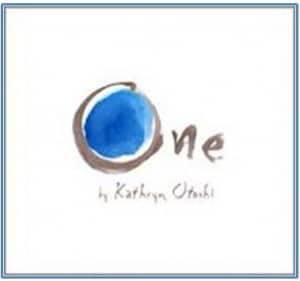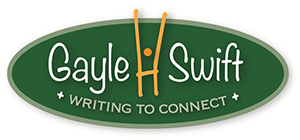 So often, kids (and adults) think, “I’m only one person. What difference can I make?” The power of one is deceptive. One quiet voice, one brave stance, one impassioned believer can shift the moment, the life, the course of history. Perhaps the situation is reversed for them and they are the child who needs that one friend, that dependable adult, that supportive teacher.
So often, kids (and adults) think, “I’m only one person. What difference can I make?” The power of one is deceptive. One quiet voice, one brave stance, one impassioned believer can shift the moment, the life, the course of history. Perhaps the situation is reversed for them and they are the child who needs that one friend, that dependable adult, that supportive teacher.
How can we as parents/teachers/adults encourage this belief in the individual’s power to take a stand and help grow children willing to be “The Difference.” make a difference?
One tool resides in the brilliant book, “One” by Katherine Otoshi. In fewer than 500 words, Otoshi captures her powerful message: “It just takes one to make everyone count.”
I enjoy the play on words. In addition to the obvious meaning, that a person can “count” (be a meaningful influence,) this book also operates as a simple counting exercise. When the colors join together, one plus one becomes two, etc. The reader feels the effect of teamwork, the isolation and loneliness of facing a larger, scarier individual.
Otoshi’s bright, spare illustrations enhance her message in a succinct and easy to absorb package. This book is the perfect anti-bullying book for young children. (In fact, anyone who reads “One” will resonate with its important theme.”
“One” has received many awards (all of them merited!):
- E.B.White Read Aloud Honor Book
- Teacher’s Choice Award
- Young Voices Foundation Award
- Moonbeam Children’s Book Medalist
- Mo’s Choice Award
- Nautilus Gold Winner
- IPPY Book Award
- Hicklembee’s Book of the Year\NCIBA Best Illustrated Award
- Reader Views Best Children’s Book
- Flicker Tale Award
AQ* Spin:Many adopted children experience a sense of being different, of feeling like the odd one out. (Author, adopted mom, Carrie M. Goldman calls this as feeling “othered,” a complex emotion that parents need to acknowledge and assist kids in processing. Parents enjoy highlighting the similarities between themselves and their adopted children.
It is equally important that parents acknowledge the ways in which our children are different from us as well. Work to help them see their differences as enriching the family. Do encourage them to express any feelings of “otherness” without trying to minimize these feelings. Their honesty leaves them vulnerable and it invites you in to their real perception of their life experiences. By listening to all of their children’s emotions about adoption, parents become a safe harbor when they can find safety and security.
“One” offers an easy segue into conversations about their being adopted and how their friends and classmates respond to that knowledge. This is another area where parents will want to be available to hear their child’s whole story–“the good, the bad and the ugly.” Avoid the temptation to minimize; this will invalidate their expereinces and feelings. That’s not the message you want to share. We don’t want to push them into expressing only the happy thoughts and feelings about being adopted. .

